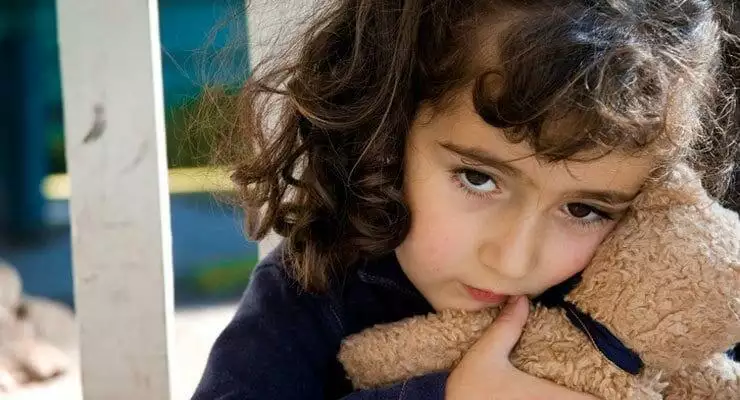The thought of someone harming your toddler is enough to give you nightmares, and you do everything you can to protect your little one. Sadly, the American Academy of Child and Adolescent Psychiatry reports that approximately 80,000 events of child sexual abuse may not be reported each year. This makes it incredibly important for you to know as a parent that any case of inappropriate touching, exposure or penetration of your child is considered to be sexual assault. Every suspected case of sexual assault on a child should be reported so that a professional can determine if your child has been harmed. Being able to recognize the obvious and less visible signs of abuse is important for making sure that your child gets prompt treatment if they are touched inappropriately.
Check For Physical Signs
Physical and sexual abuse often leaves marks upon a child that may be noticed by you or another caregiver. Unexplained injuries, such as bruises, bite marks, welts or burns, should always be treated with suspicion. While your toddler may not be able to tell you what happened, you should be wary of any that occur in strange places that would not be normally injured such as their stomach or back. Sexual abuse can also create scratches, swelling, redness or bruising in the genital area. Some children may urinate frequently or experience urinary tract infections. A child who has unexplained blood in their underwear or who complains about pain when sitting may also be a victim of inappropriate touching.
Watch For Changes In Their Behavior
Young children often express their emotions through their behavior. Once a person has hurt them, your child may try to tell you by refusing to go to them or clinging to you when you try to leave them alone with the abuser. A child who is afraid may even go so far as to try to hide when the person hurting them is near. Your child may also suddenly fight you when you try to change their clothes, or they may avoid physical touching even when it is positive such as a hug. You might also find a child expressing their abuse by acting out sexual events with dolls or making a picture showing sexual acts. Nightmares, refusal to bathe and changes in their appetite are a few more behavioral changes you may notice in your child.
Look For Emotional or Mental Responses
It is important to understand that some of the emotional responses a child may have to abuse can mimic mental health disorders. This makes it even more important to seek a professional opinion. For example, your child may exhibit signs of hyperactivity or the inability to stay still. They may squirm in their seat, run around the house and generally be very busy. Or a toddler may seem constantly distracted and unable to focus. Some children may also show signs of depression or anxiety as they struggle with coping with the abuse.
Observe For Social Cues
When a toddler is struggling to deal with abuse, they may also withdraw from social activities and focus their attention inward. This is why it is important to try to find out why a child who was once outgoing has suddenly become shy. Anger is also common for children who are being abused, and it can take the form of tantrums, hitting other children and breaking toys. It is also possible for a toddler to act out their abuse by touching other children or adults in sexual ways similar to what they have experienced.
As you keep an eye out for signs of inappropriate touching, keep in mind that many of these behaviors such a tantrums are normal for young children. What you are looking for here is a collection of behaviors that are all very different from your child’s normal temperament. As with any parenting tasks, remember that your intuition plays a big role in keeping your child safe. If you suspect abuse at all, it is better to have your child assessed by a professional doctor or counselor so that you can ensure their safety.
To learn more:






